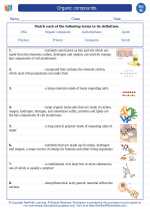Lubrication
Lubrication is the process of reducing friction between two surfaces in contact by interposing a substance called a lubricant. This helps to minimize wear, heat generation, and energy loss in machines and mechanical systems.
Types of Lubricants
There are different types of lubricants used for various applications:
- Oil-based lubricants: These are the most common type of lubricants and include mineral oils, synthetic oils, and vegetable oils.
- Greases: These are semi-solid lubricants composed of a base oil thickened with a soap or other thickener.
- Dry lubricants: These include substances like graphite and molybdenum disulfide, which provide lubrication in the form of a dry film.
- Solid lubricants: Materials such as Teflon and graphite that reduce friction between surfaces without the need for a liquid or semi-solid lubricant.
Functions of Lubrication
Lubrication serves several important functions in mechanical systems:
- Friction reduction: Lubricants help to reduce the resistance to motion between two surfaces in contact.
- Wear protection: By forming a protective film, lubricants minimize wear and prolong the life of machine components.
- Heat dissipation: Lubricants aid in dissipating heat generated by friction, preventing overheating and damage to the system.
- Contaminant control: Lubricants can help to keep contaminants such as dirt and debris away from critical parts of the system.
Methods of Lubrication
There are various methods used to apply lubricants to machinery and mechanical systems:
- Splash lubrication: Lubricant is allowed to splash or circulate over the moving parts of a machine.
- Forced-feed lubrication: Lubricant is pumped under pressure to the parts needing lubrication.
- Manual lubrication: Lubricant is applied manually to specific points in the system using grease guns, oil cans, or other applicators.
- Automatic lubrication: Systems are set up to automatically deliver lubricant to the necessary parts at predetermined intervals.
Importance of Lubrication
Lubrication is crucial for the proper functioning and longevity of mechanical systems. Without adequate lubrication, components can experience excessive wear, increased friction, and potential failure. Proper lubrication helps to ensure smooth operation, reduced maintenance, and extended equipment life.
.◂Science Worksheets and Study Guides Eighth Grade. Organic compounds
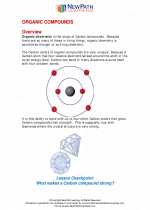
 Worksheet/Answer key
Worksheet/Answer key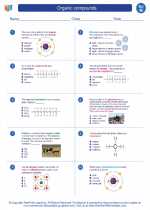
 Worksheet/Answer key
Worksheet/Answer key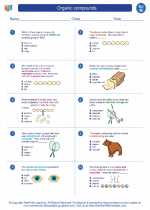
 Worksheet/Answer key
Worksheet/Answer key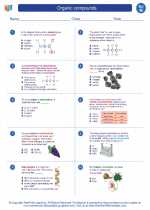
 Vocabulary/Answer key
Vocabulary/Answer key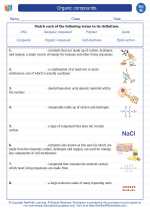
 Vocabulary/Answer key
Vocabulary/Answer key